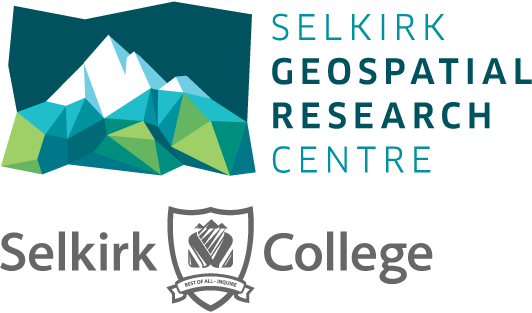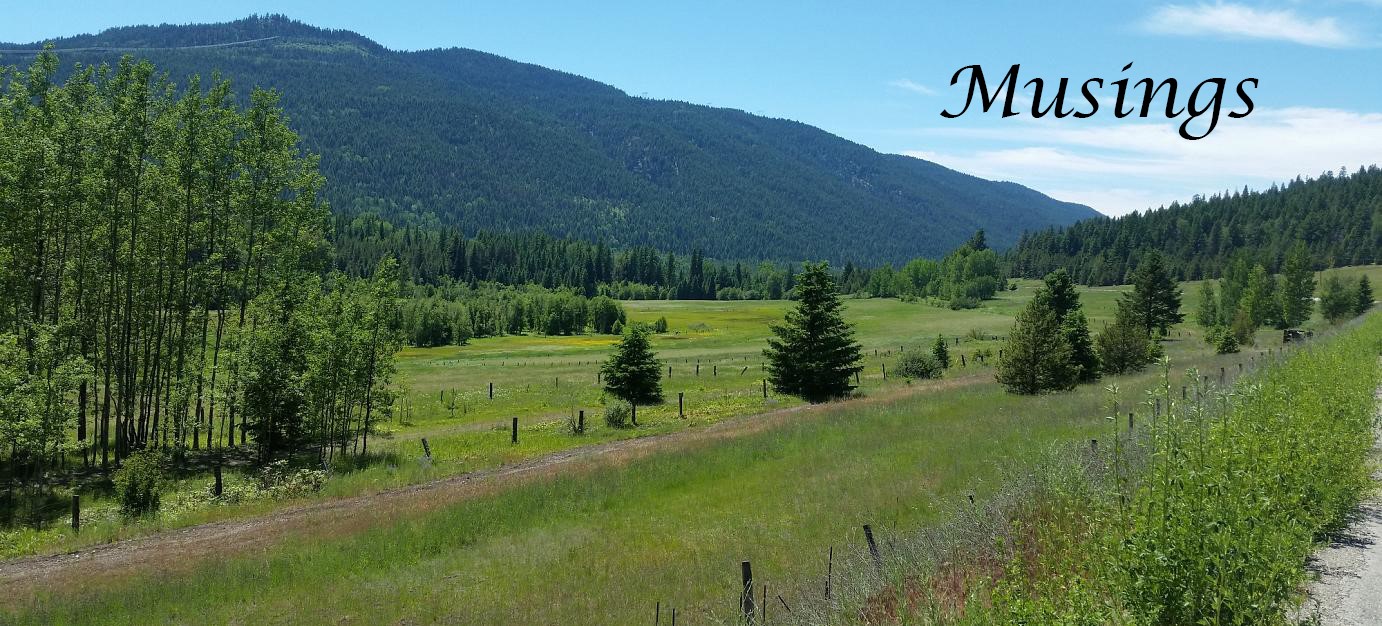
Musings of a Rural Resident
By Mark Trueman on 2019-07-02 15:21
I entered the ADGIS program in the fall of 2018 wide eyed after a 25 year hiatus from formal academic learning. As an expedition river guide for most of my working life, I spent much of my time in the absence of technology (sometimes intentionally). As such, the world of GIS and data analysis has been a significant change in pace and in many ways an entirely new world for me to explore.
As a resident of Nelson for the past 16 years I was looking for opportunities to stay local as I move forward in my new career. When the opportunity to work with the Selkirk Geospatial Research Center (SGRC) in the Open Data and Rural Open Government Coop position presented itself, I became very excited. I grew up in the city, but have come to love the smaller community and more rural way of life here in the Kootenay’s. Because of this, I’m very interested in the differences between Urban and Rural communities, and the Rural open data project presented an opportunity to explore and expand my knowledge in this area. Although we covered “Open Data” as part of our coursework in the ADGIS program, in many ways it was mostly about how open data licenses applied to accessing data for projects and work related tasks. The more I learned about it, the deeper the well seemed to become and I learned that there is an entire movement about open data which is fundamentally interdependent with the Open Government movement. For a small town river guide used to living on and at the pace of the river, these grand political ideas seemed far beyond the realm of my previous experiences. At the same time, they have provided me with a whole new horizon of ideas to explore. But where to start? Fortunately, as part of my Coop I had the opportunity to attend the Open Government Partnership Global Summit in Ottawa at the end of May 2019. Of the many things I’ve taken away from the OGP Summit, I think most important for me was the greater context of Open Government in which Open Data resides. 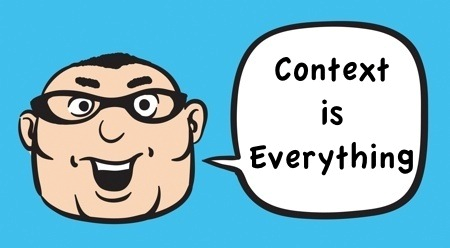 Although I’ve listed a brief summary of some of the sessions I attended and a few of the highlights I came away with, I think the real benefits I found were much more universal. The exposure to varied global perspectives, a sense of being part of a global event, and some insights into process behind the decisions made by ours and other governments around the world. I also found it encouraging to see so many people actively working toward a better world.
Although I’ve listed a brief summary of some of the sessions I attended and a few of the highlights I came away with, I think the real benefits I found were much more universal. The exposure to varied global perspectives, a sense of being part of a global event, and some insights into process behind the decisions made by ours and other governments around the world. I also found it encouraging to see so many people actively working toward a better world.
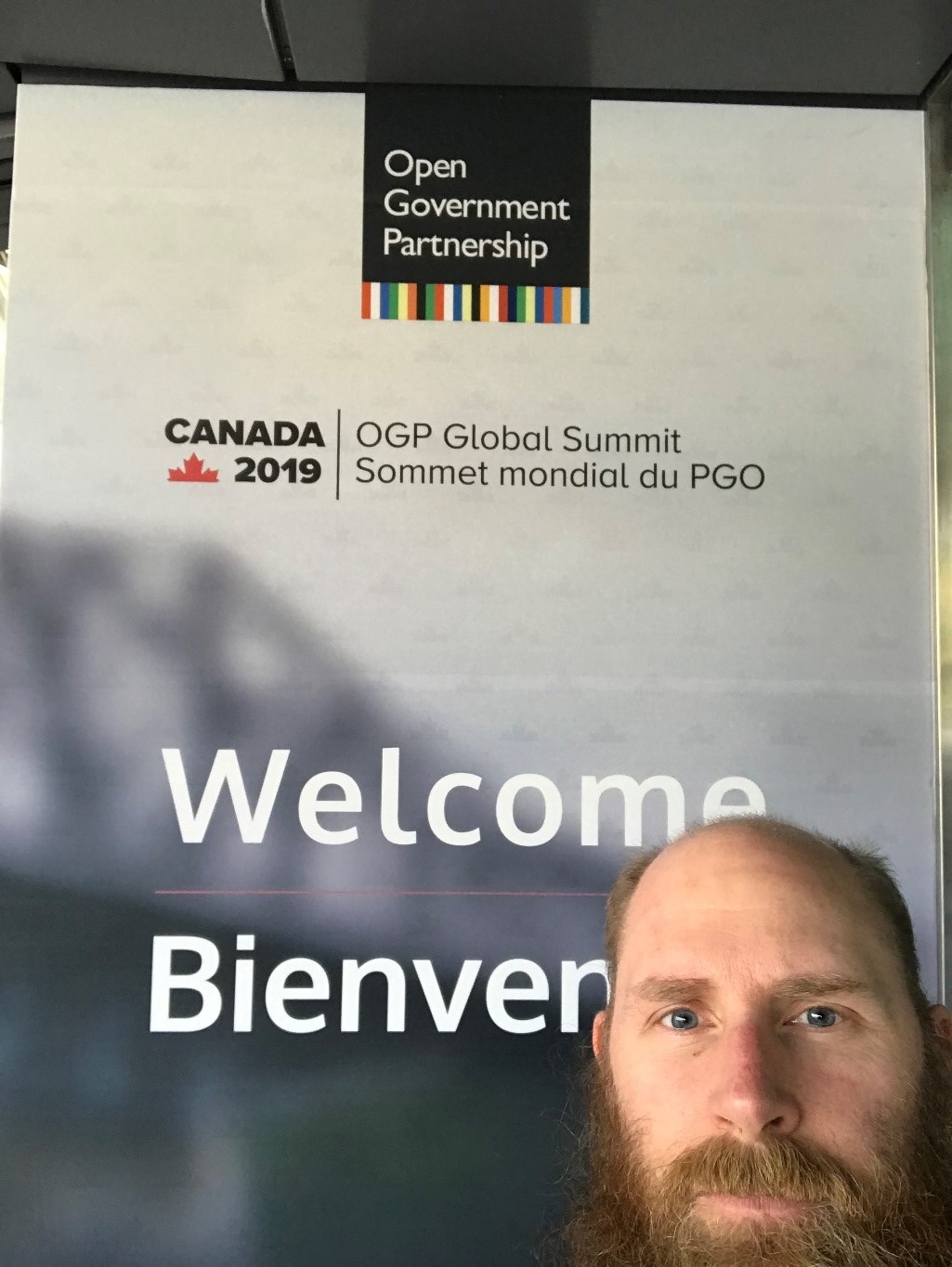
A few highlights and takeaways.
-
Although far from perfect and still in need of work, We as Canadians are very lucky to have an Open Government and functioning democracy unknown and unavailable to much of the rest of the world.
-
There is a language and vocabulary that surrounds government and policy makers which can act as a barrier to citizen engagement. I spent the first day of sessions just gaining familiarity with the vocabulary. As I move forward in my career, although still very new to this domain, I think some familiarity will be very valuable in the interactions I have with all levels of government.
-
Gender related OGP commitments doubled this year. This is remarkable, but they still only represent 2% of the more than 3000 commitments made in OGP action plans. We need to do better.
-
Local governments are the first point of contact for civil society and therefore can often have the most impact. Municipalities often act as a gateway to higher levels of government. It is critical for local governments to have open data to facilitate citizen engagement. Unfortunately, due to issues such as budget and low staffing numbers, local governments face many challenges to opening their data. These challenges are even more pronounced in rural areas.
-
The Evolution and Future Direction of Open Data and Geospatial Information and Technology.
One of the greatest hopes that this session produced, were the possibilities created through collaboration. Projects such as the Arctic Spatial Data Infrastructure, made up of an 8 country partnership, is an excellent example of such a collaboration. Also, as the amount of Open Data continues to increase the opportunities for value added products increase exponentially. Some of the challenges identified are the relatively small group of people that actually understand geospatial data, Data is often confused with information, and the increasing ease of which geospatial data is manipulated, what responsibilities do we have to ensure data is used correctly? Privacy, data ownership, and silos within levels of government emerged as the panelist’s greatest fears.
-
The Beneficial Ownership Registry. It is critical to know who actually benefits from ownership of a business in order to follow the money and help prevent money laundering. It’s estimated that money laundering in Canada is in the 10’s of billions of dollars. British Columbia is leading the discussion in Canada but progress is very slow. B.C. has just introduced Canada’s first beneficial ownership registry as of June 2019, but it’s crucial to get the rest of Canada and every country on board to prevent any havens for money laundering.
-
The balance between privacy, secrecy and transparency is a very delicate one, particularly when it comes to a countries intelligence agencies. It’s clear that some information should not be made public in the interests of national security. It was suggested by panelist Lord Carlile who acted as the UKs Independent Reviewer of Terrorism Legislation from 2001 to 2011, that in this instance, there isn’t really any transparency, it should instead, be considered as accountability. He went on to suggest that the solution lies layers of scrutiny which are capable of evolution. He suggested that to be effective the scrutineers must be fully vetted and have complete access to all information with the experience and knowledge to know the right questions to ask. Citizens must then put their faith in the independent scrutineers.
-
Sir Tim Berners-Lee inventor of the World Wide Web, suggested that social media platforms are neither open nor neutral like the web. He also discussed his new project, developed in collaboration with M.I.T. partly in response to events such as the Russian interference of the US elections and the Cambridge Analytica data scandal. The Solid (Social Linked Data) project essentially decentralizes web applications and compartmentalizes personal data in such a way as to allow the individual full control over their data. He believes that all the value in data lies in the intersection of Open and Private Data and that the Solid project will help develop this space.
As I delve deeper into what open data means, and how rural open data differs, the context provided by my experiences and perspectives at the OGP summit will be invaluable. The need for careful policies and well developed standards has become apparent, along with the delicate balances that need to be drawn between openness and privacy. An introduction to the varied roles of open data in the battle against corruption, the battle for equality, in furthering science, and in building a stronger economy has provided me with many avenues to explore.
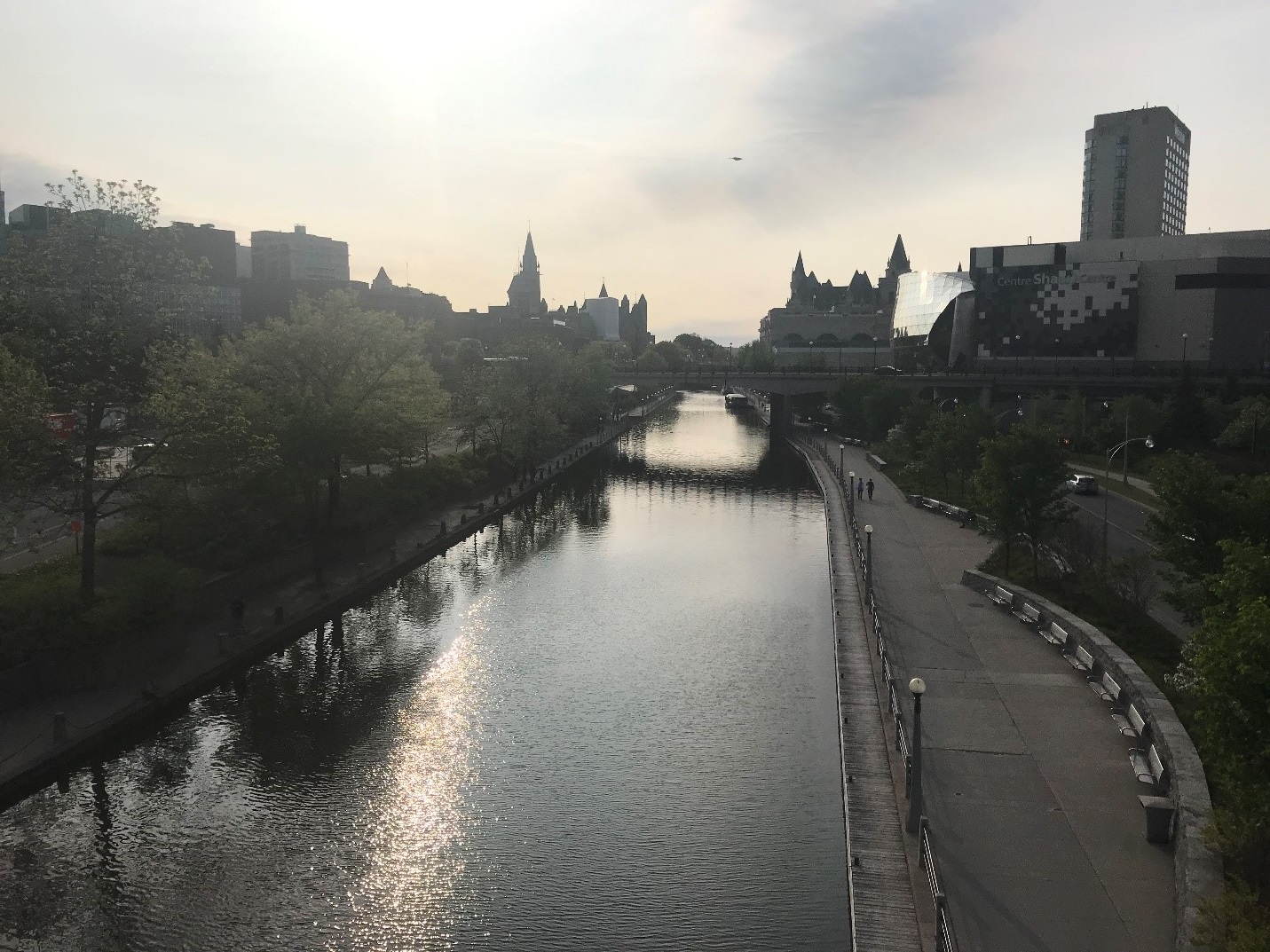
Rideau Canal, Ottawa, Ontario
